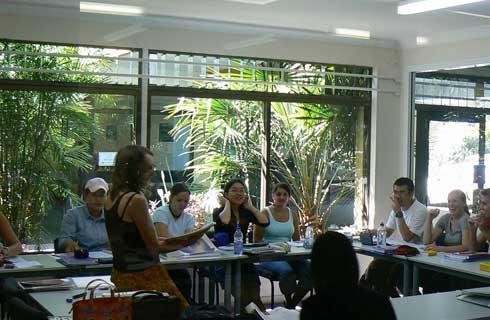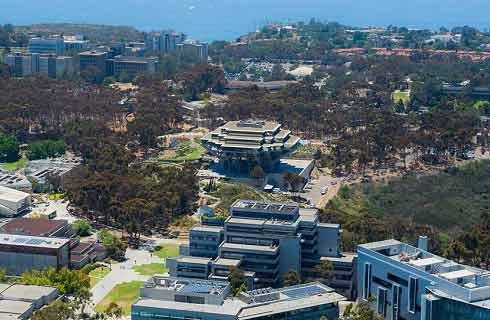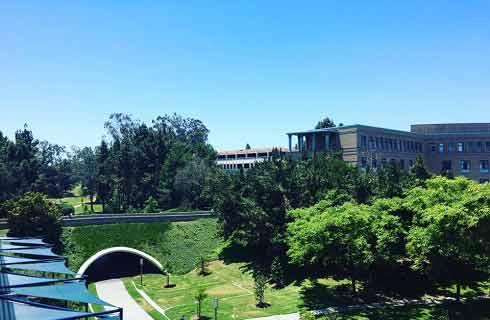- IDP China>
- 课程库>
- 艺术与设计>
- 艺术、人文与社会科学>
- 人类福利研究与服务>
- Bachelor of Arts and Bachelor of Social Work - Environmental, Agricultural and Resource Economics
文学士和社会工作学士-农业与资源经济学
Bachelor of Arts and Bachelor of Social Work - Environmental, Agricultural and Resource Economics

学历文凭
Dual Degree

专业院系

开学时间

课程时长

课程学费

国际学生入学条件
IDP—雅思考试联合主办方

雅思考试总分
- 雅思总分:
- 托福网考总分:
- 托福笔试总分:
- 其他语言考试:
CRICOS代码: 012851B
申请截止日期: 请与IDP联系 以获取详细信息。
课程简介
This five-year degree offers a comprehensive and flexible combined degree program that qualifies you as an accredited social worker, while also allowing you to enhance your qualification with majors and minors that complement the Bachelor of Social Work. While this combined degree requires a major or minor in Sociology, or a minor in Social Policy, you can choose another major or minor in various interest areas such as diversity studies, gender studies, Aboriginal Studies, or philosophy. You'll undertake integrated studies in social sciences, social policy and social work theory and practice, with a strong emphasis on Australian and comparative social welfare studies. In the last two years of the degree all students undertake the professional social work program, which includes two fieldwork placements supervised by highly skilled and experienced practitioners in a variety of settings. We develop field education learning expectations across the program and aim to develop values, skills and knowledge for levels from beginner to a practitioner capable of meeting the Australian Association of Social Workers (AASW) Practice Standards.A major in Environmental, Agricultural and Resource Economics provides a valuable understanding of commodity markets and the economics of agricultural production and an analytical understanding of a wide range of natural resource management problems. Focus is placed on the development of analytical, quantitative and communication skills. As a graduate you will have excellent employment prospects to work as an applied economist in commodities and futures markets, merchant and trading banks, government departments, large agribusiness firms, corporate firms, and in the media as an economic journalist.
相关申请
 预科
预科 奖学金
奖学金 实习机会
实习机会 在校学习
在校学习 跨境学习
跨境学习 校园授课-线上开始
校园授课-线上开始 在线/远程学习
在线/远程学习
开学时间&学费
学费信息仅供参考,请与IDP联系以获取详细信息
| 开学时间 | 时长 | 学费 | 地点 |
|---|
学校排名

世界排名60
数据源:
泰晤士高等教育世界大学排名
关于悉尼大学

位于澳大利亚首都的悉尼大学是举世闻名的机构,一直名列世界前20名大学之列(2024年QS世界大学排名)。在2022年QS毕业生就业能力排名中,悉尼大学的毕业生也位居澳大利亚第一和世界第四。来自世界各地的学生进行本科和研究生水平的学习。学生可以在澳大利亚最广泛的课程和学科中选择。该大学提供超过400个学习领域供学生选择,大学5门学科位居世界前十名,另外还有28门学科位居世界前50名(2022年QS世界大学学科排名)。通过实习和工作经验以及通过大学海外项目进行国际交换(包含在学位内的可选项目),从而增加了学生的就业机会。学生将在支持和启发的环境中学习和发展,大学会提供给学生大量的服务,这包括学术和专业支持,残疾服务,保密咨询服务,健康服务还有财务援助办公室提供服务。学生还可以参加由悉尼大学学生会(USU)运营的250多个校园俱乐部和社团,从体育运动到文化团体应有尽有。校园内有许多可供学生使用的设施,其中包括带奥林匹克规格温水游泳池的健身室和攀岩中心。此外,还有美术馆、博物馆、咖啡馆、餐厅和酒吧供学生休闲。学生还可以使用南半球最大的学术图书馆。悉尼是世界上最优秀的城市,根据《经济学人》2021年安全城市指数显示,悉尼被评为第四大最安全的居住地,当地的学生体验得以丰富和提升。
本校相关课程

Graduate Certificate in Clinical Dentistry - Advanced Restorative
学历文凭
Graduate Certificate
开学日期
课程费用总额


Graduate Diploma in Clinical Dentistry - Advanced Restorative
学历文凭
Graduate Diploma
开学日期
课程费用总额


城市和区域规划研究生文凭
学历文凭
Graduate Diploma
开学日期
课程费用总额


教育硕士
学历文凭
Masters Degree (Coursework)
开学日期
课程费用总额


专业工程学硕士(电力)
学历文凭
Masters Degree (Coursework)
开学日期
课程费用总额


专业工程学硕士(电信)
学历文凭
Masters Degree (Coursework)
开学日期
课程费用总额










 澳大利亚
澳大利亚